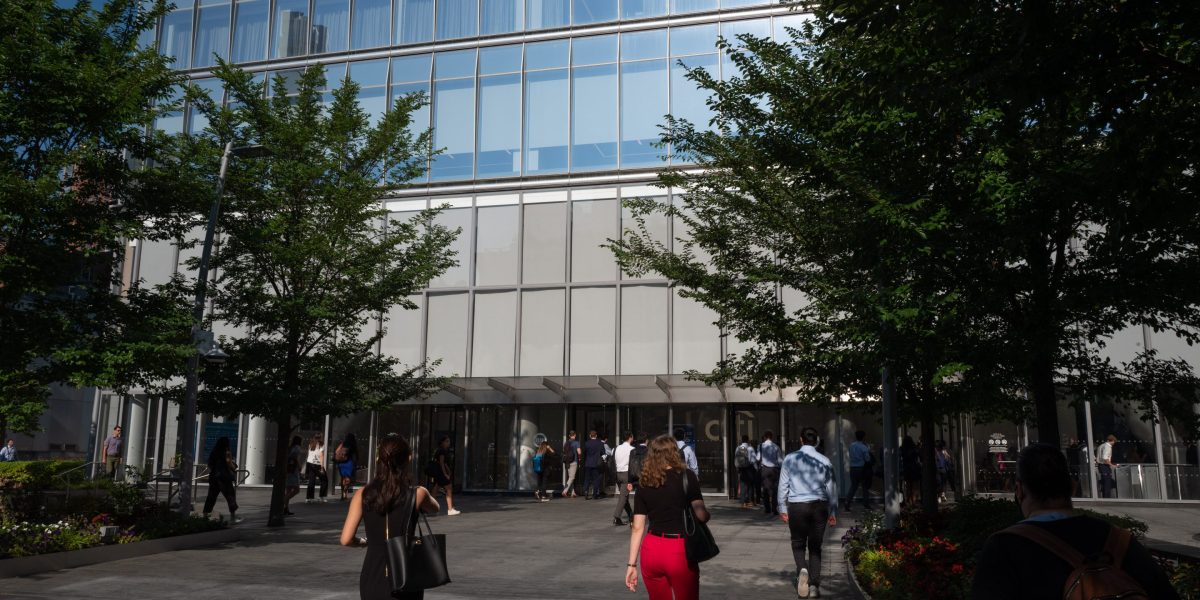Citigroup Inc., HSBC Holdings Plc and Barclays Plc are ordering more executives to report to the company’s offices five days a week as regulatory changes make it harder for Wall Street to allow working from home.
Citigroup will need about 600 U.S. employees previously eligible to work remotely to commute to the company’s offices full-time, the New York-based company said in a statement Thursday. Even then, the majority of staff can continue their hybrid work schedule and work out of the office for up to two days a week, the report said.
At HSBC, changing regulations affect about 530 employees in New York — about half the city’s workforce — and the bank is talking to them about their options, Mabel Rius, chief human resources officer for the U.S. and Americas, said in an interview. The company is trying to allow as many people as possible to continue to have the option to log in from home if they wish, Rius said. HSBC’s regional head has said it could avoid a blanket five-day mandate for all staff.
Barclays will require thousands of investment banking employees worldwide to stay in the office or travel to visit clients five days a week from June 1, it said in a memo late on Thursday. The decision — after Bloomberg reported that the bank was considering a five-day office mandate for more U.S. staff — coincides with “new regulatory policies,” the report said.
“Being together in the office drives innovation, collaboration and a stronger culture,” wrote Cathal Deasy and Taylor Wright, the firm’s global co-heads of investment banking. “We remain committed to flexible working and we recognize that there will be times when you will need to work from home,” they said, adding that group heads have the discretion to allow occasional flexible working where necessary.
Wall Street banks are known to be more flexible in allowing employees to continue working remotely after the pandemic. The changes come as the Financial Industry Regulatory Authority – the US brokerage industry’s top watchdog – is set to reintroduce pre-pandemic rules for monitoring workplaces in the coming weeks.
That could mean the end of remote work for many bank traders and some other dealmakers, as bosses conclude that allowing the practice under Finra’s framework isn’t worth the effort or cost. Companies like Deutsche Bank AG have increased charges as they weigh changes to their own policies.
With some bosses blaming Finra’s rules for a new round of five-day office mandates, regulators have responded, saying they are at least trying to allow more flexibility — not less.
The tension stems from US requirements that banks monitor staff and facilitate periodic workplace inspections. When Covid-19 broke out, regulators initially relaxed some of their rules to ensure people could work from home. Some of these properties are now ready for sunset.
While Finra says the changes won’t require companies to call staff into the office five days a week, the company has acknowledged that compliance requires work.
Some home offices will be required to be listed with regulators as so-called ‘residential supervisory locations’. A pilot program for these sites will set up a system that will allow them to be inspected remotely at least every three years from July. Privately, some executives have said that allowing employees to log in from home could come with a hefty price tag to meet the requirements.
Companies may ultimately come to different conclusions. Other banks are considering a five-day office mandate for some employees, people with knowledge of the matter said earlier this week.
At Deutsche Bank, executives expect the company can remain compliant with limited impact on its protocols, according to a person with knowledge of its thinking. Last month, Truist Financial Corp. to investment banking staff that they will have to work from the office every weekday from June 1.
Some of Wall Street’s biggest banks – such as Bank of America Corp., JPMorgan Chase & Co. and Goldman Sachs Group Inc. – have already embraced five days of office travel at many of their desks, at least in practice, if not as a rule. But some smaller franchises have touted flexibility, which could give them an edge in recruiting and retaining talent.
